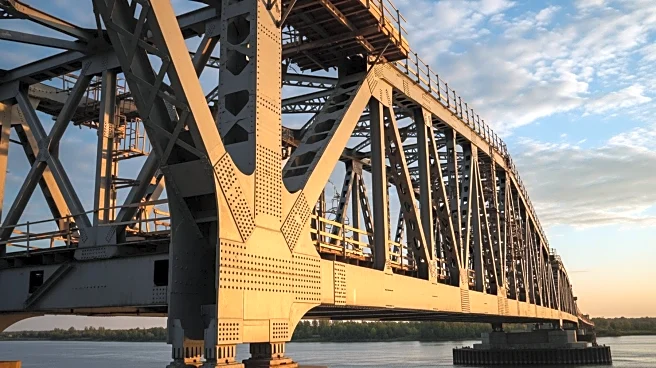Rapid Read • 7 min read
A federal judge expressed skepticism regarding the Justice Department's lawsuit against all 15 federal judges in Maryland. The lawsuit challenges a court rule that temporarily prevents the Trump administration from executing rapid deportations of immigrants. This legal action is part of President Trump's broader efforts to limit judicial power, particularly in immigration cases. The rule in question was established by Chief Judge George Russell to ensure due process for detainees challenging their removal. The case has attracted attention due to its potential implications for judicial independence and executive power.
AD
The lawsuit represents a significant clash between the executive branch and the judiciary, highlighting ongoing tensions over immigration policy. If successful, the Justice Department's approach could set a precedent for executive challenges to judicial rulings, potentially undermining judicial independence. This case could impact how immigration laws are enforced and interpreted, affecting thousands of immigrants facing deportation. The outcome may influence future interactions between federal agencies and the courts, shaping the balance of power within the U.S. government.
Judge Thomas Cullen, overseeing the case, is expected to rule by Labor Day. The decision could lead to further legal battles, possibly reaching the Supreme Court. The judges have enlisted conservative lawyer Paul Clement to argue for dismissal based on judicial immunity. The case's progression will be closely watched by legal experts and policymakers, as it may affect future executive-judicial relations and immigration enforcement practices.
The lawsuit raises ethical and legal questions about the limits of executive power and the role of the judiciary in safeguarding due process. It underscores the importance of judicial checks on executive actions, particularly in contentious areas like immigration. The case may prompt discussions on judicial independence and the potential consequences of executive overreach.
AD
More Stories You Might Enjoy










